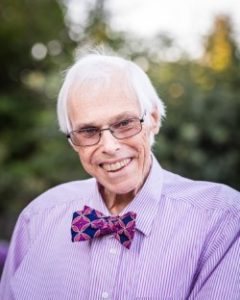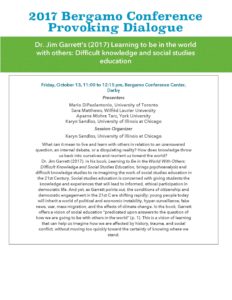Call for Papers
The Curriculum of Disability Studies: Multiple Perspectives on Dis/Ability
Journal of Curriculum Theorizing Special Issue
Guest Editors:
Jamie Buffington-Adams, PhD
Kelly Vaughan, PhD
In this special edition of the Journal for Curriculum Theory (JCT), we seek articles focused on The Curriculum of Dis/Ability Studies. Please note that we embrace a Disability Studies perspectives that dis/ability cannot be represented narrowly; therefore, we seek to highlight a multiplicity of voices (representing different experiences and academic fields) to address dis/ability in education and society. As such, we are calling for articles from those who identify as curriculum scholars, practitioners, and disability studies scholars. Strong submissions would draw from both the literature of Curriculum Studies and the literature of Disability Studies (and/or Disability Studies in Education).
Articles may address one of the questions below; however we will also consider pieces with other themes that draw from both Curriculum Studies[1] and Disability Studies[2].
- How do/could scholars bring a disability studies perspective to address the quintessential curriculum studies questions: What knowledge is of most worth? Who decides? Who benefits?
- How do/could educators in pre-K -16 spaces employ a disability studies perspective in their pedagogical and/or curricular approaches to education?
- How do/could scholars incorporate disability studies perspective in their work for social justice within schools?
Please note that we seek to compile seven to ten brief (five to seven page) articles for this special edition. Please submit your 2500 – 3500 word article to jabuffin@iue.edu by May 5, 2018. Please include a cover sheet with your biographical information, institutional affiliation, and contact information. Your article must include your theoretical framework, methodological approach, findings/themes, and significance. You article should not contain any identifying information.
You will be notified if your proposal was accepted by mid June, 2018.
Jamie Buffington-Adams
Assistant Professor
School of Education, Indiana University East
jabuffin@iue.edu
Kelly Vaughan
Assistant Professor
School of Education and Counseling, Purdue University Northwest
vaughak@pnw.edu
[1] We draw attention to the fact that JCT is “[h]istorically aligned with the “reconceptualist” movement in curriculum theorizing, and oriented toward informing and affecting classroom practice, JCT presents compelling pieces within forms that challenge disciplinary, genre, and textual boundaries.”
[2] Please note that we draw from the Disability Studies in Education SIG, which conceptualizes disability studies as a way “to promote the understanding of disability from a social model perspective drawing on social, cultural, historical, discursive, philosophical, literary, aesthetic, artistic, and other traditions to challenge medical, scientific, and psychological models of disability as they relate to education.” Disability Studies, as a field, is committed to social justice in schools and society. It is also important to note that the “interest, agendas, and voices of people labeled with disability/disabled people” are central. (http://www.aera.net/SIG143/Disability-Studies-in-Education-SIG-143)

